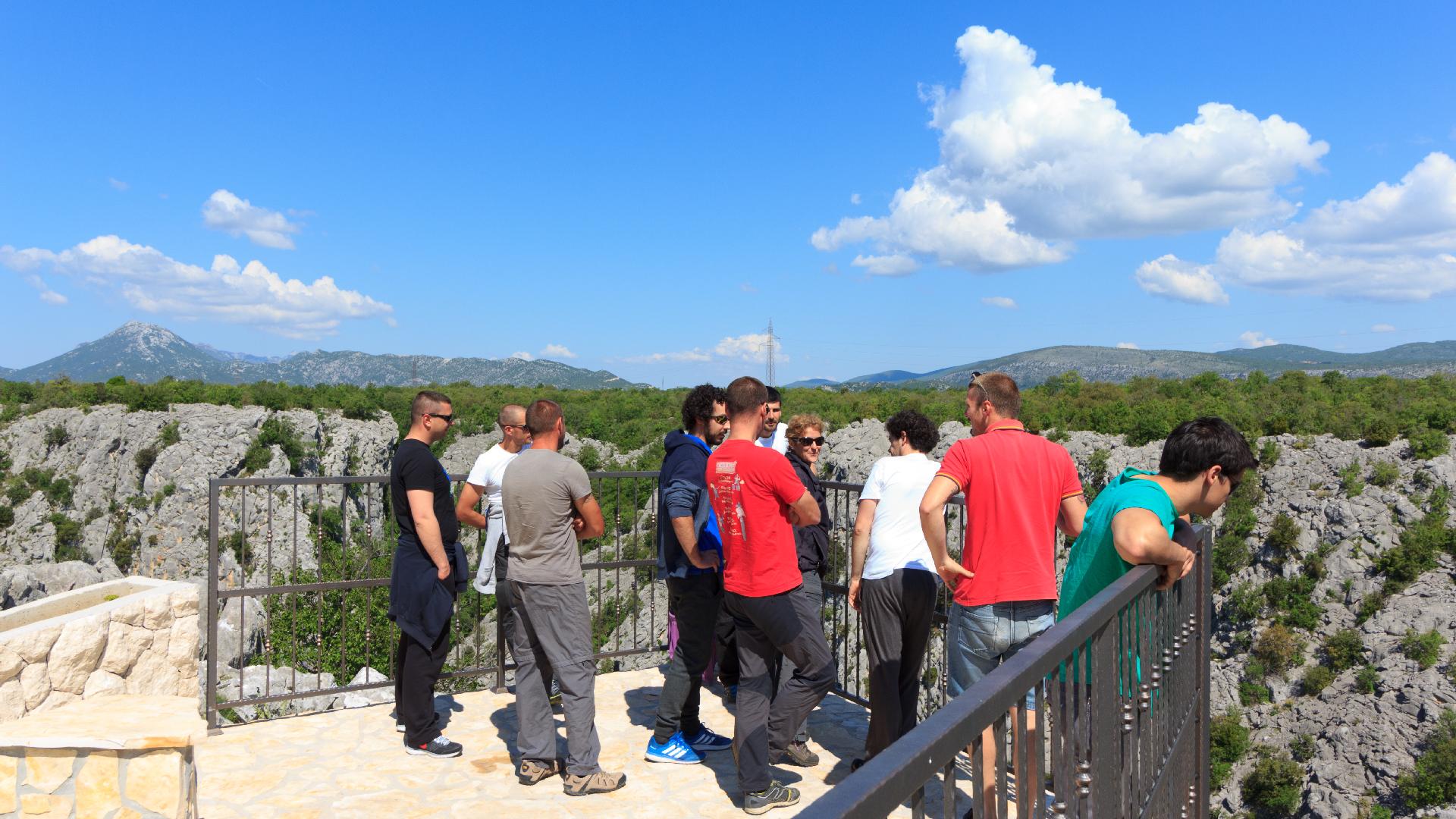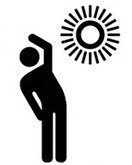
Canyoning tours warnings about possible dangers
Please read carefully the canyoning tour’s warnings about possible dangers. Canyoning is a combination of multiple activities. Most of them are climbing, going down the river, jumping from one rock to another and passing through rapids. Most accidents in the canyon happen if people jump into a river in places they are not supposed to. Do not jump in the river if your guide didn’t allow you to do so!
There are some places where we go fast down the rapid. Please pay attention to the following rules. You must lie down on the surface of the river with your feet in front of you. Lift your head a little so you can see where you are going. Use your hands and body to control movement. Never go down the river with your head first because you could hit a rock and get seriously hurt!
Canyons also hold the danger of hypothermia. We organize the canyoning tours on the Cetina River during spring and summer time.
Temperatures are high during summer and spring. There has never been any noted case of hypothermia.

While we swim through the lakes you can use any swimming technique you like. The greatest danger in the canyons comes from the sudden rapids. This kind of danger does not exist when we organize tours. Three dams up the river control water levels.
Algies cover some of the rocks in the canyon. They can be slippery so be careful when you walk across. If you don’t feel safe with crossing from one rock to another then do the cross by going down on all fours. Control movement with your hands as well. The Cetina river canyon holds the danger of sudden stones falling from the cliffs. This can happen during earthquakes or after heavy rains. Sometimes because of a combination of those two factors over a longer period of time.
Shoes are vital. We recommend trainers or good sports shoes.
Canyoning tours essential equipment -> Canyoning equipment
More about UIAA safety standards -> UIAA safety standards
When we move through the canyon we move in a row of people. One by one or in small groups. One of the guides is always ahead of the group. You should never go in front of him! For a larger group, there will be a guide at the back of the group as well. If you have any questions or problems ask guides. Also if you need help or rest just ask guides. Canyoning Tours’ safety advisory is about ensuring a fun and exceptional time.
Before take-off, please tighten your helmets. When the helmet is properly placed on the head straps should not get over your beard. The helmet protects our head in case of any falls or hits while going through the canyon. Also, you must tighten your life jacket. There is a strapon on each side and a zipper. Also, there is a buckle in the front middle. Otherwise, it can go over your head when you swim or jump in the river. The life jacket serves to increase flotation in the river. It also protects you from getting hurt in case of any fall.
If you have any pre-medical conditions like asthma or diabetes… and you need to take some medicine during the canyoning tour you should tell the guides before the start of the tour. Also is good to tell guides if you are a non-swimmer to take extra care of you.
Thank you for taking the time and reading the canyoning tours’ warnings about possible dangers. We wish you a great time on our canyoning adventure.


